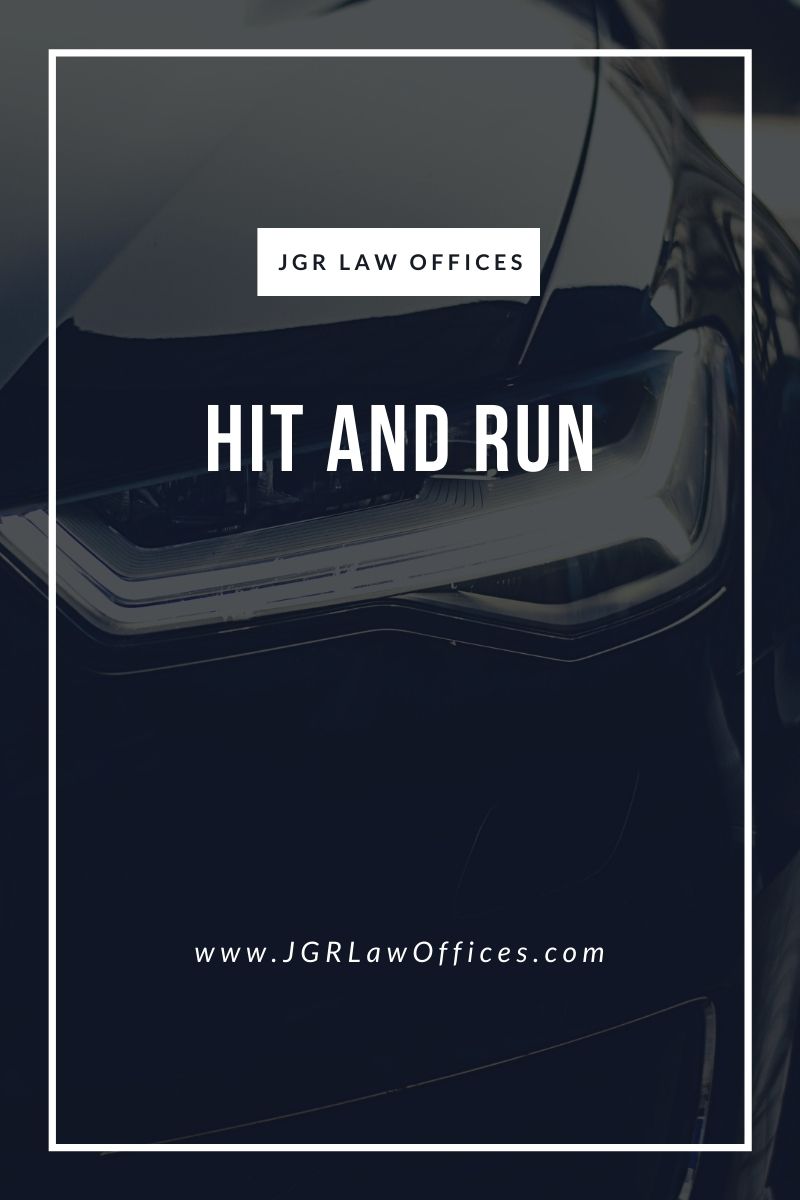Table of Contents
ToggleHit and Run
Hit and Run in Washington can either be a simple misdemeanor (or a gross misdemeanor) depending on how the crime was charged. The most important factor in determining if the charge is a more serious (Gross Missileanor) or a lesser offense is whether the defendant struck an attended vehicle. Here is a description of each charge:
Hit and Run – Attended
This is the most serious of the two misdemeanor-level charges. This is a Gross Misdemeanor and you could be sentenced to up to one year in prison and a $5,000 fine. This offense can also result in a suspension of your license from the Department of Licensing for a year.
The Elements
1. 1.The driver of any vehicle that is involved in an accident which results in damage to another vehicle, must immediately move it to the nearest location. The driver must also provide his or her name and address.
2. A driver who fails to obey or stops in accordance with the above requirements will be charged with a gross misdemeanor.
Simply put, an individual who strikes another vehicle must stop immediately and exchange all contact information and insurance information. Even if you’re not at fault, this applies!
Other collateral consequences of “Attended.”
A conviction can result in a one-year license suspension. The person will not be allowed to get an Occupational License or Restricted License while they are serving their license suspension. Individuals with a CDL will likely face a penalty for their right to drive a commercial vehicle. There are many ways to resolve Hit and Run Attended cases without all the negative consequences. This section will be followed by Hit and Run Unattended. These more favorable solutions often apply to both Attended and Unattended cases.
Hit and Run – Vehicles or other property left unattended
This is the less serious of the two charges. This is a Simple Misdemeanor. You could be sentenced to up to 90 days in prison and a $1,000 fine.
The Elements
(1) Any vehicle that collides with another vehicle must immediately stop. The operator must then locate the vehicle’s owner and notify them [informing the owner of the hit vehicle your name, address].
(2) Any vehicle that is involved in an accident that results in property damage… shall take reasonable steps in order to locate the owner and inform him/her of such fact. Or, he/she shall leave a notice at a prominent place on the property where he/she has left a written notice [informing the owner your name…
Simply put, anyone who collides with unattended vehicles or property adjacent to the roadway must either stop and locate the owner or leave a note in conspicuous places containing all pertinent information.
Other collateral consequences of “Unattended?”
Unattended does not result in the suspension or revocation a driver’s license, unlike Hit and Run Attended. A conviction for this offense will most likely result in an increase in your insurance rates. Unattended for a CDL driver will result in the same disqualification as an Attended for an Attended.
Hit and Run – How to Solve the Problem
Many of the possible resolutions to the charges for Hit and Run-Attended and Hit and Run-Unattended are the same. JGR Law Offices is always trying to avoid conviction in a case resolution, so that they can avoid all of the negative consequences discussed above.
Two common instruments that we use to avoid convictions are a Pre-Trial Diversion Agreement or PDA (or PDA) and a Compromise Of Misdemeanor. Both will usually result in dismissal.
Our website provides an in-depth analysis both of the Compromise Of Misdemeanor and of the PDA.
These charges are often interpreted by drivers as a threat to their livelihood. This is not true. These cases are handled by our attorneys for almost two decades. The results are often surprising. JGR Law Offices, a Hit and Run defense firm with offices throughout WA state, is JGR Law Offices.
Our office is available to assist you if you were in an accident that occurred in the middle or late night, whether it was attended or unattended. You may have options to either avoid the crime completely or provide an absolute defense in the event that the crime is brought up later.
